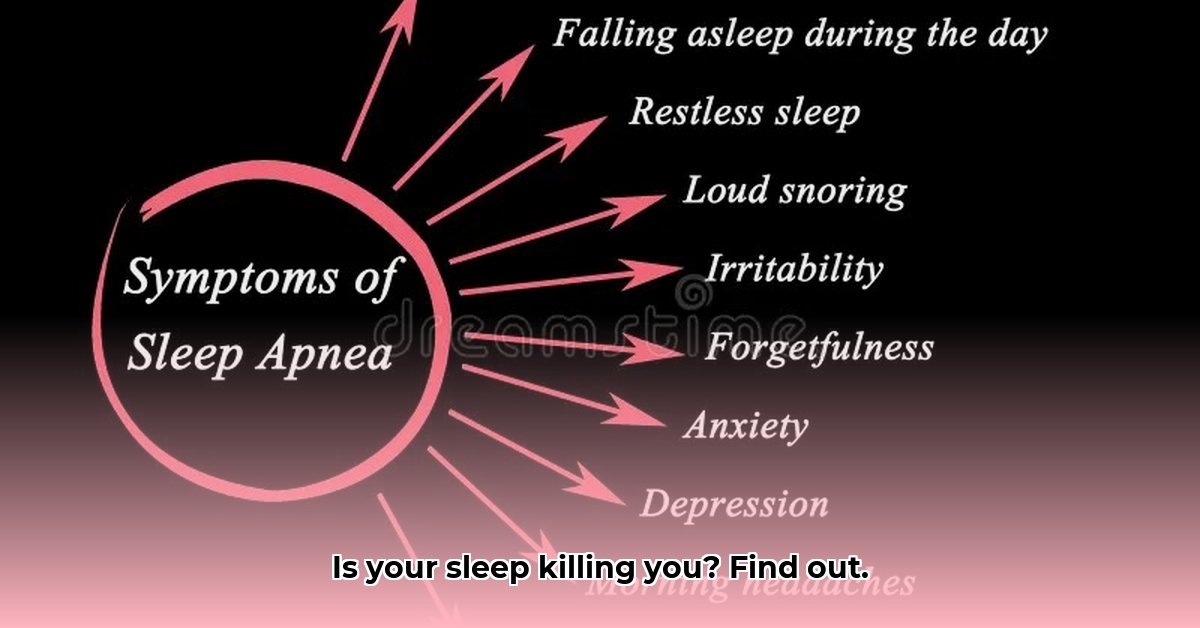
Is that snoring keeping you and your mak (mom) up at night? Do you feel vrot (terrible) even after a full night's sleep? You might be experiencing slaap apneu (sleep apnea), a common yet serious condition affecting many South Africans. This guide will help you understand the signs, find the right treatment, and get back to sleeping soundly.
Slaap Apneu Symptomen: Is your snoring more than just a snore?
Many dismiss snoring, but that rumbling sound could signal sleep apnea. Let’s explore the symptoms and what to do if you suspect you have it.
Spotting the Warning Signs: Could it be Slaap Apneu?
These symptoms, while not definitive, warrant a chat with your doctor.
The Thunderous Snore: A loud, disruptive snore is a major red flag. Does your snoring wake jou (you) up, or is it disturbing your partner’s sleep?
Daytime Moegheid (Fatigue): Feeling exhausted despite getting enough sleep? This persistent tiredness significantly impacts daily life.
Morning Headaches: Frequent morning headaches could indicate disrupted sleep.
Choking or Gasping: Gasping or choking during sleep, often noticed by a partner, suggests breathing interruptions.
Brain Fog and Concentration Issues: Difficulty focusing or experiencing “brain fog” points to inadequate rest.
Mood Swings and Irritability: Sleep deprivation can lead to irritability and mood swings.
High Blood Pressure (Hypertension): Untreated sleep apnea increases your risk of hypertension.
Restless Nights: Frequent awakenings throughout the night, leaving you feeling unrefreshed.
Subtle Signs You Might Miss: The Sneaky Symptoms of Slaap Apneu
Some symptoms are less obvious:
Nocturia (Frequent Nighttime Urination): Frequent nighttime urination disrupts sleep and can be linked to sleep apnea.
Persistent Dry Mouth: Waking up with a dry mouth suggests improper breathing during sleep.
Night Sweats: Excessive sweating throughout the night is another sign of sleep disturbances.
When to Seek Professional Help: Don't Delay!
See your doctor immediately if:
- You or your partner notices extremely loud or persistent snoring.
- You experience excessive daytime sleepiness.
- You frequently wake up gasping for air.
- Your partner witnesses pauses in your breathing during sleep.
Understanding the Diagnosis: What to Expect
Your doctor might recommend a sleep study (polysomnography) to monitor your breathing patterns during sleep.
Managing Slaap Apneu: Finding the Right Treatment
Treatment depends on the severity of your sleep apnea:
- Continuous Positive Airway Pressure (CPAP): A machine delivers air pressure to keep airways open during sleep. (A mask is worn.)
- Oral Appliances (Mouthguards): Custom-made mouthguards reposition the jaw and tongue.
- Lifestyle Adjustments: Weight loss, avoiding alcohol before bed, and better sleep hygiene.
- Surgery: In some cases, surgery might address structural issues causing sleep apnea.
Remember, seeking help is a strength, not a weakness. Effective treatment is available, improving your sleep and overall health. Don't let sleep apnea control your life; consult your doctor today.
How Effective Are Different Sleep Apneu Treatment Options Long Term?
Key Takeaways:
- CPAP is effective but requires consistent use. Many find the mask uncomfortable.
- Lifestyle changes, particularly weight loss, can significantly improve symptoms.
- Oral appliances offer convenience but vary in long-term effectiveness.
- Surgical interventions have risks and may not guarantee long-term success.
- Newer treatments are promising but require more research.
- Individualised treatment plans are essential for long-term success.
Understanding Long-Term Sleep Apnea Treatment Success
Finding the right treatment is a journey. Let's explore long-term effectiveness:
CPAP (Continuous Positive Airway Pressure) Therapy
CPAP is highly effective for moderate to severe sleep apnea but requires consistent use. Comfort and adherence are crucial for long-term success.
Oral Appliances
Oral appliances are convenient but may not be effective long-term for everyone; consistent use is vital.
Lifestyle Modifications
Lifestyle changes, such as weight loss, have a profound long-term impact. A 10% weight reduction often significantly reduces or eliminates symptoms.
Surgical Interventions
Surgical options carry risks and require ongoing monitoring for long-term efficacy.
Hypoglossal Nerve Stimulation
This innovative treatment shows promise but needs further study to establish long-term efficacy and safety.
Choosing the Right Long-Term Strategy
Your doctor will personalize your treatment plan based on your needs, preferences, and tolerance. A combination of therapies might be necessary. Regular check-ups are key to ensure long-term success and adjust your treatment plan as needed.